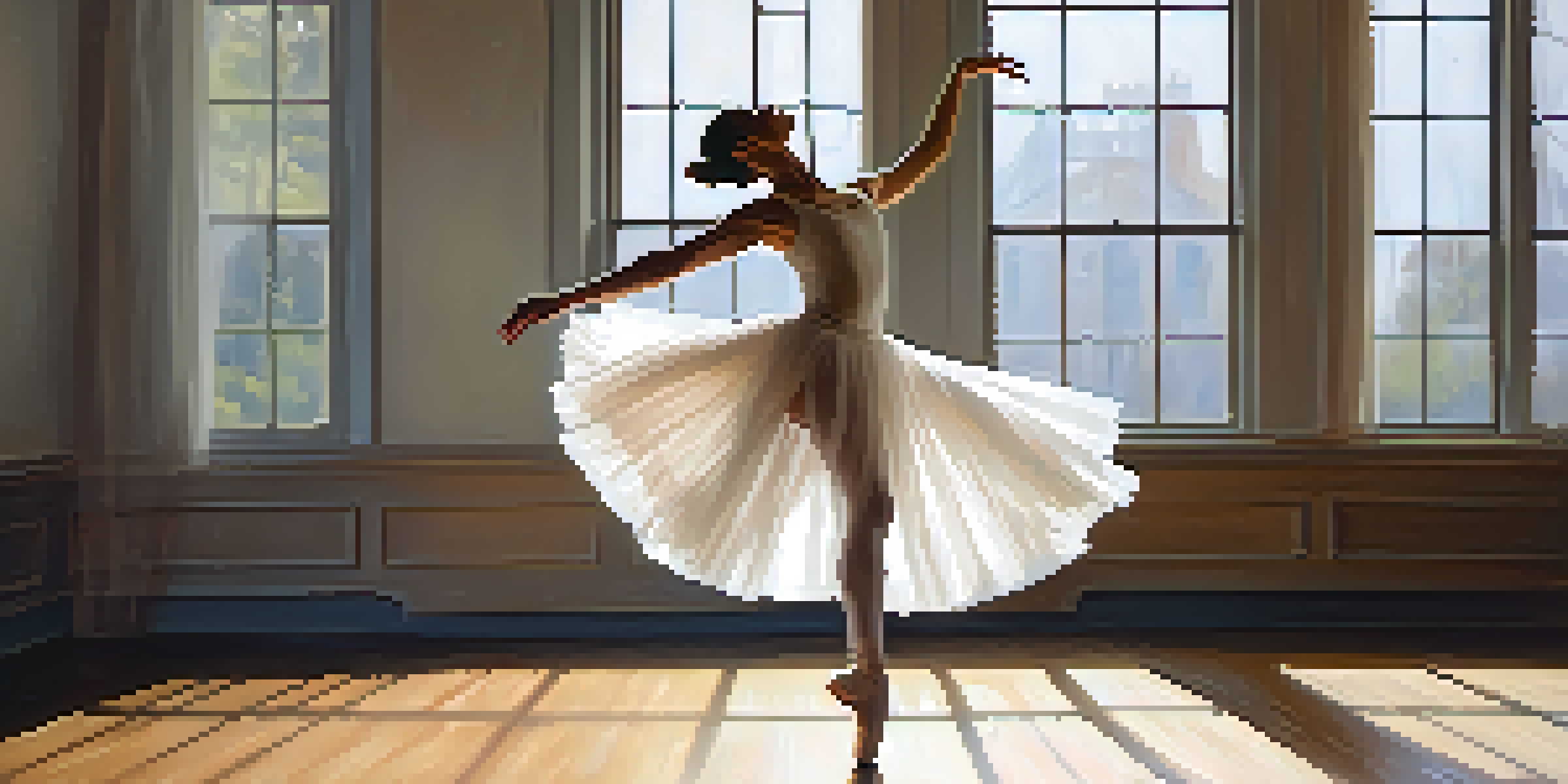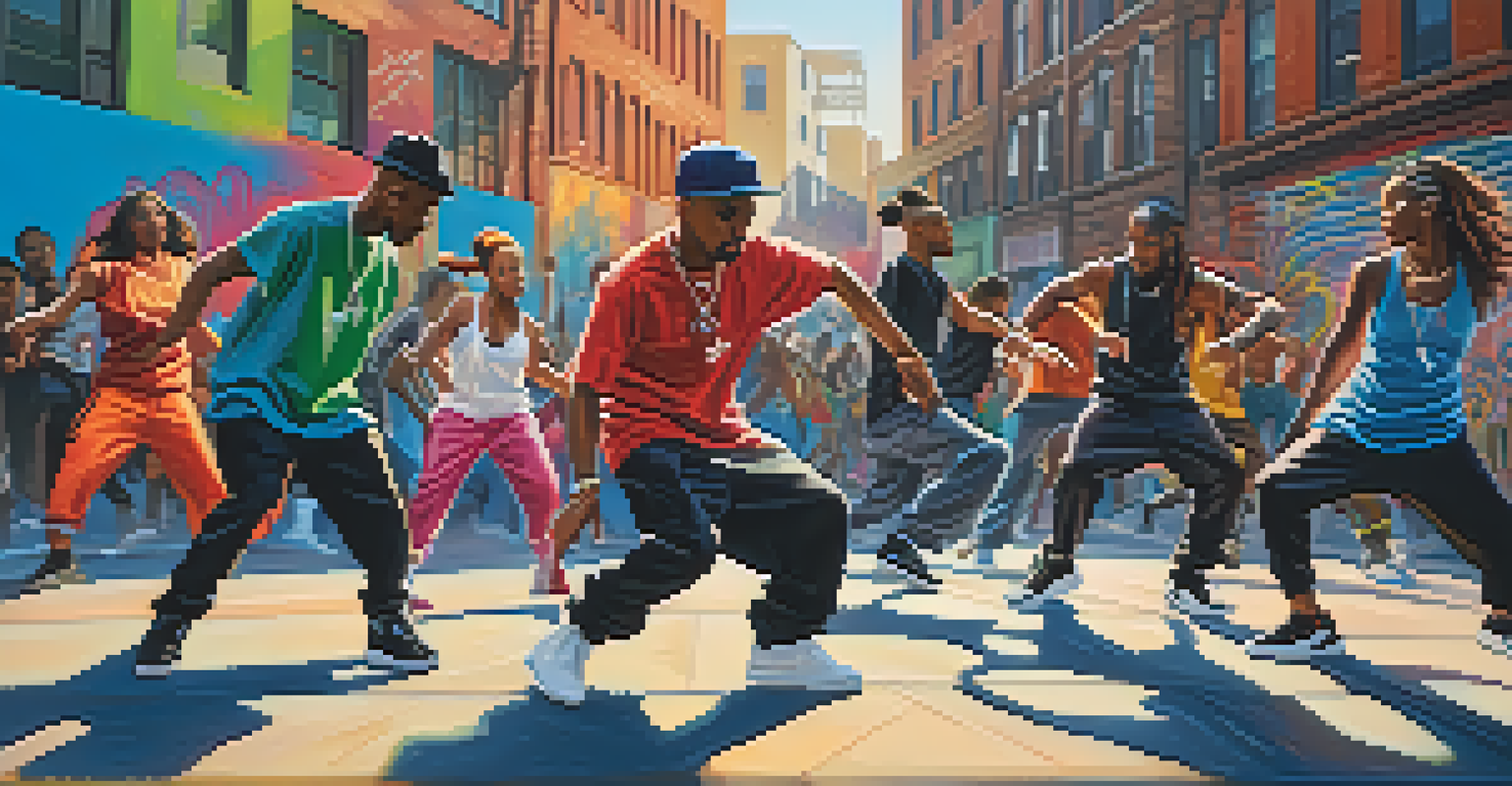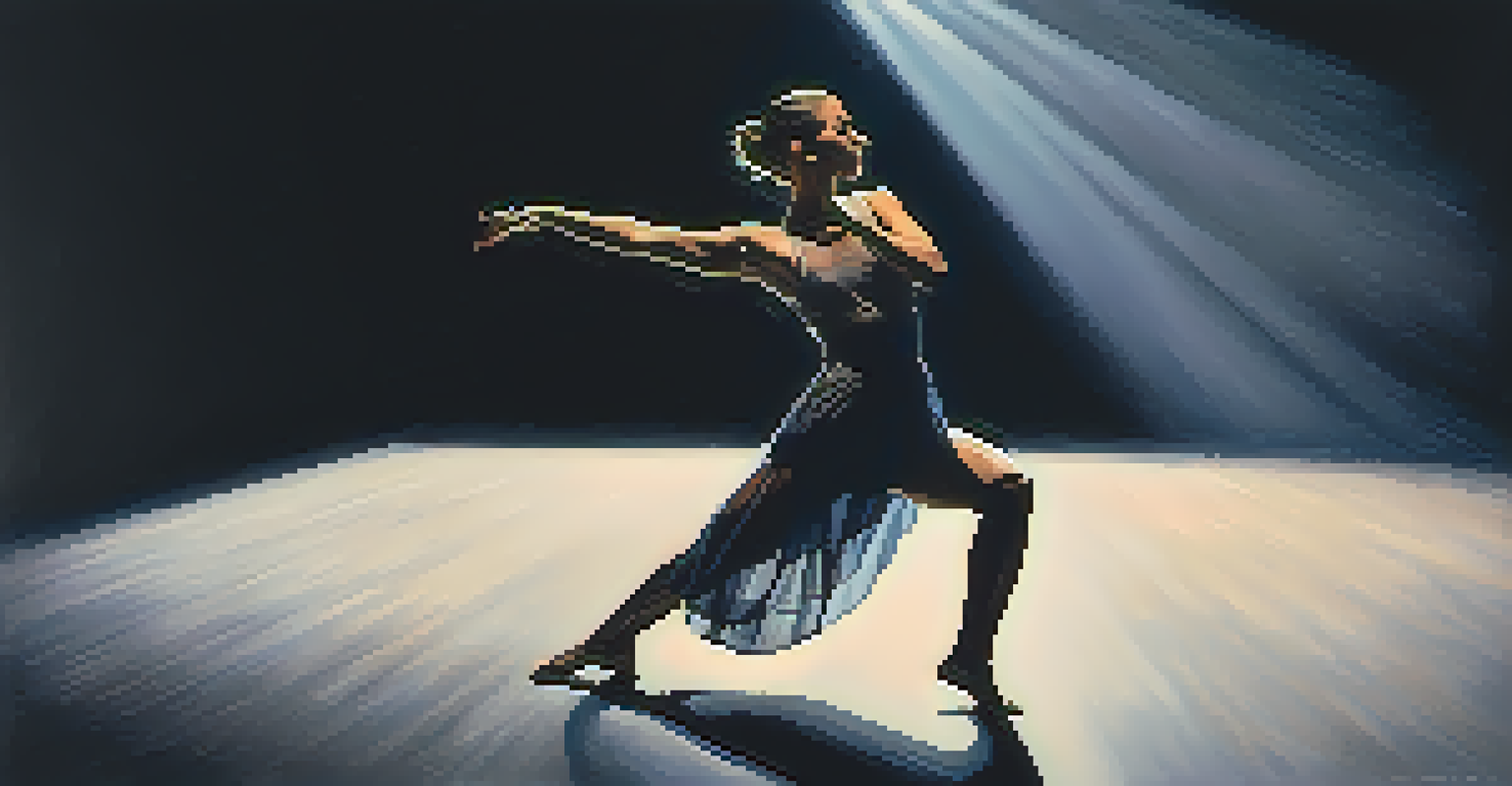The Role of Dance in Building Self-Discipline and Focus

Understanding Dance as a Discipline
Dance is more than just movement; it's an art form that requires dedication and practice. From ballet to hip-hop, each style has its own technical demands, which instill a sense of discipline in dancers. This commitment to mastering intricate steps and routines teaches individuals the importance of perseverance and consistency.
Dance is the hidden language of the soul.
When dancers commit to learning a routine, they often have to practice it repeatedly to perfect their technique. This repetition helps cultivate a mindset that values hard work and patience—key components of self-discipline. Over time, dancers learn to push through challenges, reinforcing their ability to stay focused and dedicated.
Moreover, the structured environment of dance classes, with their set schedules and expectations, further enhances this discipline. Dancers learn to arrive on time, respect their instructors, and contribute positively to group dynamics, all of which are transferable skills that benefit them in other areas of life.
Focus: The Core of Dance Performance
Focus is essential in dance, as it requires concentration on multiple elements simultaneously—choreography, rhythm, and emotional expression. Dancers must be fully present in the moment to execute their movements accurately, which strengthens their ability to concentrate. This heightened awareness can translate into improved focus in academic and professional settings.

During performances, distractions can arise, yet experienced dancers learn to tune these out and remain engaged with their audience and fellow performers. This ability to maintain focus under pressure builds resilience and enhances mental clarity. Over time, dancers find that this skill becomes second nature, allowing them to channel their energy effectively.
Dance Cultivates Discipline
Through dedicated practice and structured classes, dancers develop self-discipline that benefits various life areas.
The practice of focusing on dance also helps in developing mindfulness. By concentrating on their bodies and movements, dancers cultivate a deeper connection to themselves, which promotes emotional regulation and stress relief. This mindfulness is invaluable in everyday life, aiding in tasks that require sustained attention.
Setting Goals in Dance: A Path to Discipline
Goal-setting is a crucial aspect of dance training. Dancers often set specific, measurable goals—like mastering a difficult routine or improving their flexibility. This practice not only gives them direction but also fosters a sense of accountability, as they track their progress over time.
The body says what words cannot.
Achieving these goals, whether big or small, reinforces the notion that hard work pays off. Each little success builds confidence and motivates dancers to challenge themselves further, creating a positive feedback loop that enhances self-discipline. This cycle is rewarding and encourages dancers to set even higher aspirations.
Additionally, working towards goals helps dancers to develop a growth mindset. They learn that setbacks are part of the journey, and perseverance in the face of challenges is what ultimately leads to success. This understanding is fundamental not just in dance but in all aspects of life.
Teamwork in Dance: Cultivating Focus and Discipline
Dance often involves collaboration, whether in a group performance or a partner dance. Working with others necessitates a high level of focus and discipline, as each dancer must be attuned to their partners' movements and timing. This interdependence encourages dancers to cultivate a sense of responsibility towards their teammates.
Through teamwork, dancers learn to communicate effectively, listening to one another’s needs and providing constructive feedback. This collaboration helps to strengthen bonds and build trust, which can enhance their focus during rehearsals and performances. It’s about synchronizing not just their movements but also their mental energy.
Focus Enhances Performance
Maintaining focus in dance helps dancers improve their concentration, resilience, and emotional regulation.
Moreover, participating in ensemble work teaches dancers the importance of supporting one another. When everyone is disciplined in their practice and focused on the group’s success, it creates a cohesive performance. This collective effort reinforces the idea that discipline and focus are not just individual traits but also community values.
The Role of Routine in Dance Training
Establishing a routine is a foundational aspect of dance. Regular practice sessions help dancers develop a structured approach to their training, which fosters self-discipline. Consistency in practice not only improves skills but also creates a sense of normalcy and stability in their lives.
Routines encourage dancers to prioritize their time effectively, balancing practice with other responsibilities. This time management skill is essential in helping them maintain focus on their goals, both in dance and beyond. A well-organized routine allows dancers to allocate energy where it’s needed most.
Furthermore, the predictability of a routine can reduce anxiety, as dancers become familiar with their practice environment and expectations. This comfort level enhances their ability to focus on the task at hand, making it easier to immerse themselves in their art. In this way, a structured routine becomes a powerful tool for personal growth.
Dance as a Form of Expression and Emotional Focus
Dance is not just about physical movement; it's a powerful form of self-expression. Through dance, individuals can communicate their emotions and experiences, which can enhance their emotional focus. This connection between body and mind encourages dancers to channel their feelings into their performance, fostering a deeper level of engagement.
Exploring emotions through movement allows dancers to confront and process their feelings, leading to personal growth. This emotional focus can be especially beneficial during challenging times, as dance offers an outlet for expressing stress or anxiety. In turn, this practice of emotional regulation strengthens their overall focus.
Goal-Setting Fuels Growth
Setting and achieving specific goals in dance fosters accountability and a growth mindset, encouraging continuous improvement.
Additionally, dance can serve as a therapeutic tool, promoting mental well-being. As dancers learn to express their emotions, they find clarity and purpose, which enhances their ability to concentrate on their goals. This holistic approach combines physical discipline with emotional insight, creating a balanced foundation for success.
Lifelong Benefits of Dance on Discipline and Focus
The benefits of dance extend far beyond the studio. The self-discipline and focus developed through dance practice can positively influence various areas of life, from academics to career pursuits. Individuals who have trained in dance often find it easier to tackle challenges head-on and maintain motivation in their endeavors.
Furthermore, the skills acquired in dance—goal-setting, teamwork, time management—are transferable to numerous life situations. Whether in a professional setting or personal relationships, these skills foster a proactive approach to challenges. Dancers often emerge as leaders, equipped with the tools to inspire others.

In essence, dance is a powerful vehicle for personal growth. By nurturing self-discipline and focus, it equips individuals with the confidence and resilience needed to navigate life’s complexities. As they carry these lessons forward, dancers become not just artists but well-rounded individuals ready to take on the world.